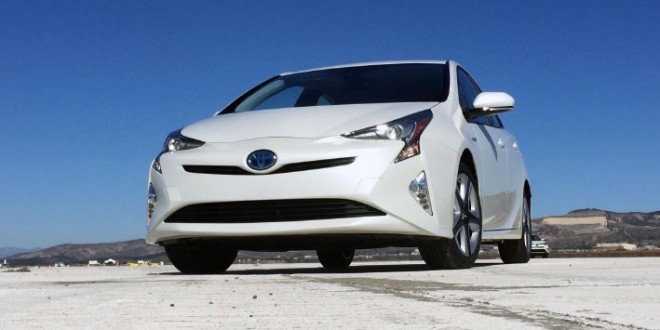Over the past two decades, Toyota has invested substantial resources in developing the hybrid powertrain that is used in the Prius, which has become one of the world’s best known vehicles.
The Prius gets off to a good start. It’s not just the architecture that takes up less space, it’s the hybrid part of the powertrain – featuring a battery that’s both smaller, lighter and quicker-charging. And the consequence is a bigger boot space for your family’s luggage – 502 litres is an increase of more than 10% on before.
Your family itself gets more room to relax in, too, and the glasshouse around them now lets in more light so it feels bigger and airier all round. And from the driver’s seat, the dash has a studied sparseness that comes across rather nicely.
From the outside, the Prius doesn’t look as different to the previous model as it actually is. Those new underpinnings mean it’s wider and longer, though – but lower in terms of both roof height and centre of gravity.
Combine this with what Toyota says is a 60% increase in rigidity, and you should be looking at a tidy suite of dynamic skills – especially as they’ve also brought its suspension up to date.
From what we’ve seen so far, the Prius delivers on these promises. It’s still a family car whose aim is to get you around in a bubble of electric calm, not to bring out the F1 fantasist in you, but first impressions are that it feels tidier dynamically and in particular more confidence inspiring when you get on the brakes.
It’s a more powerful vehicle, too, which is always nice. The familiar 1.8-litre petrol engine has been wound up to 97bhp, and it’s coupled to a motor with 71bhp – not epic figures, but with the two elements blending so well you can’t see the join the result is a good, usable sweep of acceleraton.
So it’s a Prius that takes a step forward as a Prius, and a Toyota that takes a step forward as a Toyota. It’s expensive enough to get you thinking about the conventionally powered alternatives, for sure, but the bottom line is that this is the best Prius yet.
Actually, of course, the bottom line is that so far, it seems Toyota’s future is safe and sound. The TNGA platform has many more tests to come – but it’s come through its first with flying colours.
Agencies/Canadajournal
 Canada Journal – News of the World Articles and videos to bring you the biggest Canadian news stories from across the country every day
Canada Journal – News of the World Articles and videos to bring you the biggest Canadian news stories from across the country every day




nice Carrr
However Toyota “improves” the Prius no longer matters to me. I bought a new 2010 Prius V with an extended factory warranty of 10 years/125K miles. At about 70K miles, oil consumption went from virtually zero between oil changes (factory recommended 10K) to 1 quart every 1500 miles. Miles per gallon dropped from about 47 mpg to about 38 mpg. Expecting that the problem was similar to oil issues Toyota had with the engines of some of its other models, I told Toyota that something was wrong. Toyota responded that oil consumption of 1.2 quarts every 1200 miles (1 quart per 1000 miles) was within factory specs: Yes, the dealer showed me the specs. Toyota refuses to address the problem until oil consumption reaches 1 qt/1K. I still have 2 years and 20K miles left on my useless $2000 extended factory warranty. Although I don’t trust it for long trips, I will hold onto the Prius for a while longer in the hopes that Toyota will repent and stand behind its product. I repeat, my car is still under warranty unlike similar problems with some of the models that Toyota repaired as a “goodwill gesture” under threat of class action lawsuit. Why would anyone buy a car in which the factory specs are 1 quart of oil every 1000 miles. What good is paying $2000 for an extended factory warranty when such factory specs allow the manufacturer to avoid repairs? You decide, but I don’t expect to buy any more Toyota products. I will continue to offer my opinion to avoid Toyota products.
I Love Prius 🙂